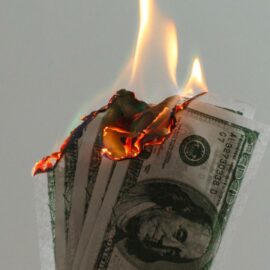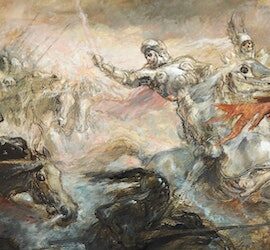

This article is an excerpt from the Shortform summary of "Thinking in Systems" by Donella H. Meadows. Shortform has the world's best summaries of books you should be reading.
Like this article? Sign up for a free trial here .
Why do the rich get richer? Is there a system failure that allows the rich to accumulate massive wealth, while everyone else struggles?
Competitive exclusion is the concept of needing success to be successful or the rich getting richer. The reason why the rich get richer has to do with societal and economic systems failures that encourage it.
Read about why the rich get richer, and how we might begin to correct this system failure.
Why the Rich Get Richer
Do you wonder why the rich get richer, instead of an economy gaining wealth in a more balance way? Also known as: competitive exclusion, success to the successful. This is how the rich get richer.
How It Happens
How do the rich get richer? Two competitors have access to the same limited pool of resources. The winner gets a greater share of resources, which in turn allows the winner to compete even better, which then earns it more resources. On the other side, the loser gets progressively fewer resources, which makes the loser even less able to compete. Reinforcing feedback loops are at play here.
If this cycle is allowed to continue unabated, the losers will eventually be forced out of the game entirely. This outcome may be unhealthy and run counter to the goals of the whole system, and explains how the rich get richer.
Examples
In ecology, one species can outcompete another, taking all the system resources to the point that the loser becomes extinct. (Shortform note: An example is an invasive species that reproduces so successfully it disrupts the local ecosystem.)
In commerce, a successful business can reinvest its profits into more technology, capacity, or political lobbying, which further enlarges its share of profits. Left unchecked, the business can become a monopoly.
The author also discusses this in the context of social inequality. The poor get poorer in a number of ways:
- The poor have access to worse education, which leads to worse job opportunities, which leads to lower incomes. Their children are born into poverty, perpetuating the cycle.
- They pay rent to landowners, who use the income to buy more land.
- The poor tend to organize politically less often, and so they are underrepresented in government spend and attention.
Fixing the Rich Get Richer
If you’re an individual agent losing against a growing competitor, you can choose to diversify, or play a different game. In business, this can mean entering a new market or seeking different resources. However, this doesn’t always work, if the monopolist can remove all budding competition, say by destroying them or buying them up.
From a system point of view, the monopolist’s reinforcing feedback loop can be countered with balancing feedback loops that limit the monopolist’s growth. These include:
- Antitrust regulation to break up monopolies
- Tax laws to charge the wealthier a greater percentage of their wealth
- Estate taxes to reduce the inheritance that is passed on to the next generation, thus limiting the ability of a family to preserve its wealth
These have the effect of leveling the playing field and equalizing the players.
Now you know the answer to the question “how do the rich get richer?” A broken system.

———End of Preview———
Like what you just read? Read the rest of the world's best summary of Donella H. Meadows's "Thinking in Systems" at Shortform .
Here's what you'll find in our full Thinking in Systems summary :
- How the world, from bathtub faucets to fish populations, can be seen as simple systems
- The key system traps that hold back progress, such as escalating arms races and policy addiction
- Why seeing the world as systems can give you superpowers in work and life






